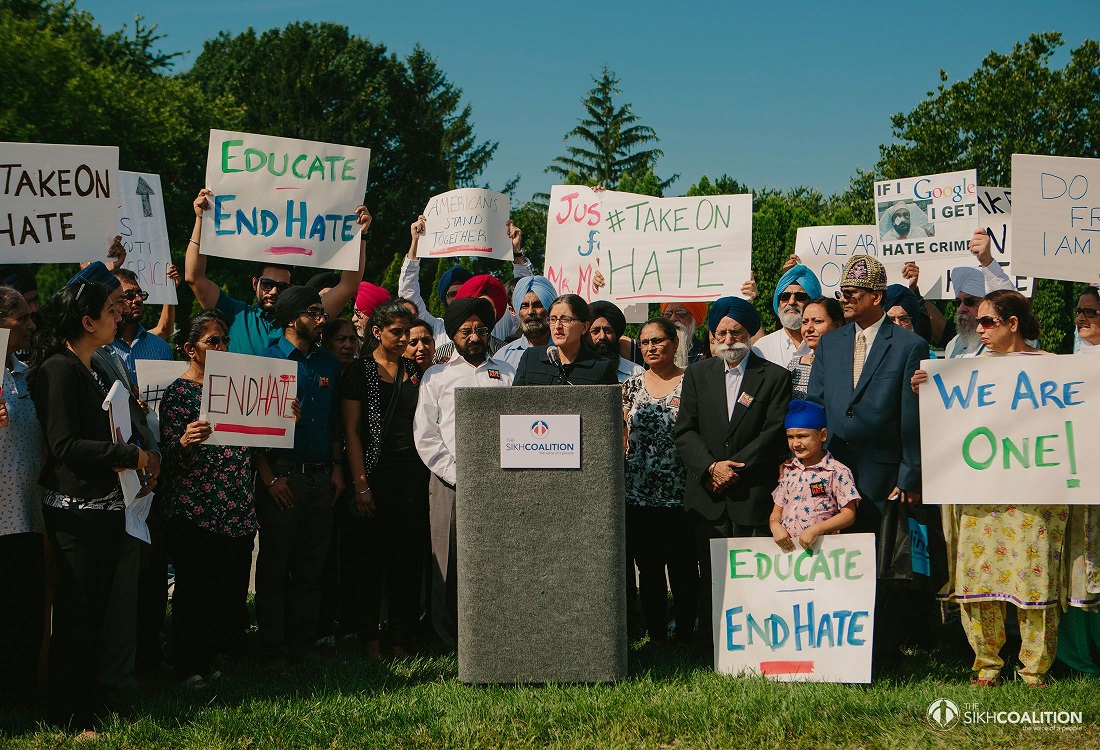
2018 hate crime report shows anti-Sikh crimes rising for third consecutive year.
Looking at the polarizing political atmosphere in the country, it may be easy to guess that hate crimes are on the rise in cities across America.
But the Federal Bureau of Investigation’s (FBI) annual report for hate crime in 2018 released on November 12 also highlights some glaring facts.
Anti-Sikh hate crimes rose by 200 percent since 2017, making Sikhs the third most commonly targeted religious group in the dataset, according to the report.
What makes the situation more alarming is that despite a nation-wide understanding for a need to curtail hate crime, there seems to be a gross underreporting of such offenses across the spectrum.
According to the Bureau of Justice Statistics, Americans experience an average of 250,000 hate crimes per year.
But the latest FBI data, by contrast, only documented 7,120 incidents, with less than 13 percent of law enforcement affirmatively providing reports of hate crimes.
Troubled by the findings of the FBI report, particularly the 200 percent rise in anti-Sikh hate crimes, minority civil rights organization, Sikh Coalition has called for action to effectively counteract hate crime against targeted communities.
“At the end of the day, this data simply isn’t giving us the accurate information we need to effectively counteract hate against targeted communities,” said Sim J. Singh, Sikh Coalition Senior Manager of Policy and Advocacy.
“It’s past time for action,” he said. “Congress must pass the next generation of common-sense legislation that equips law enforcement to better identify and track hate incidents with the bipartisan Khalid Jabara-Heather Heyer NO HATE Act.”
The Jabara-Heyer NO HATE Act was named for two victims of high-profile murders (Khalid Jabara, killed in 2016, and Heather Heyer, killed in 2017) who were excluded from previous hate crime statistics due to poor data collection and reporting practices.
This legislation would require the federal government to address underreporting and related issues by vastly improving hate crime reporting with funding for resources at the state level, including critical training for law enforcement and the establishment of hate crime reporting hotlines.
The Sikh Coalition also noted that just as Heather Heyer and Khalid Jabara’s hate crimes went uncatalogued by the FBI, the Sikh American community experienced a similar oversight of a serious crime.
In 2017, a man shot more than a dozen rounds into a van of five Sikh men in Carson City, Nevada, wounding Harmandeep Singh Shergill.
The attacker was convicted on four counts with a hate crime enhancement and sentenced to 34 years in prison. Yet the assault does not appear in the FBI’s 2017 data as a hate crime.
Even so, the FBI’s limited data confirms that Sikhs, with their distinct articles of faith, remain hundreds of times more likely to be targeted for bias-related harassment or violence than their fellow Americans, according to the Coalition.



